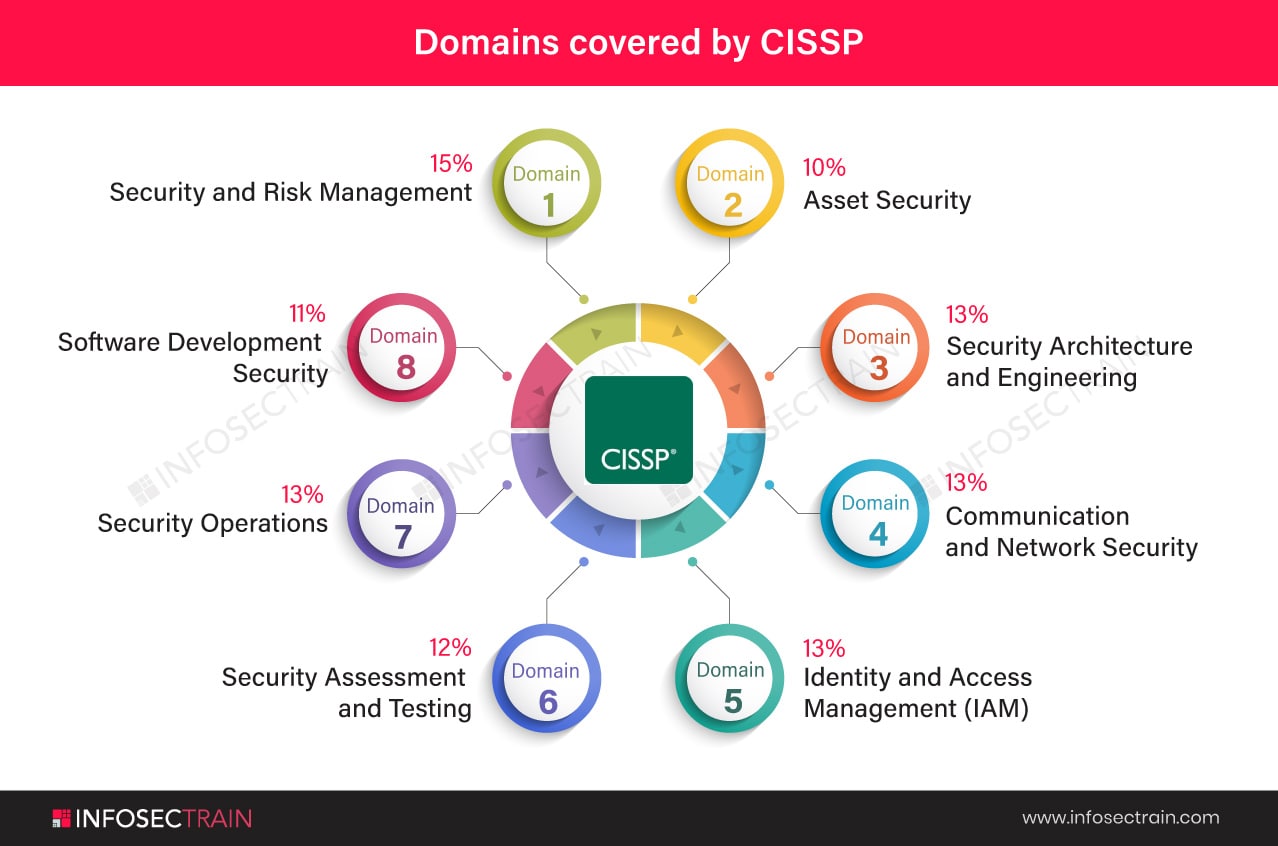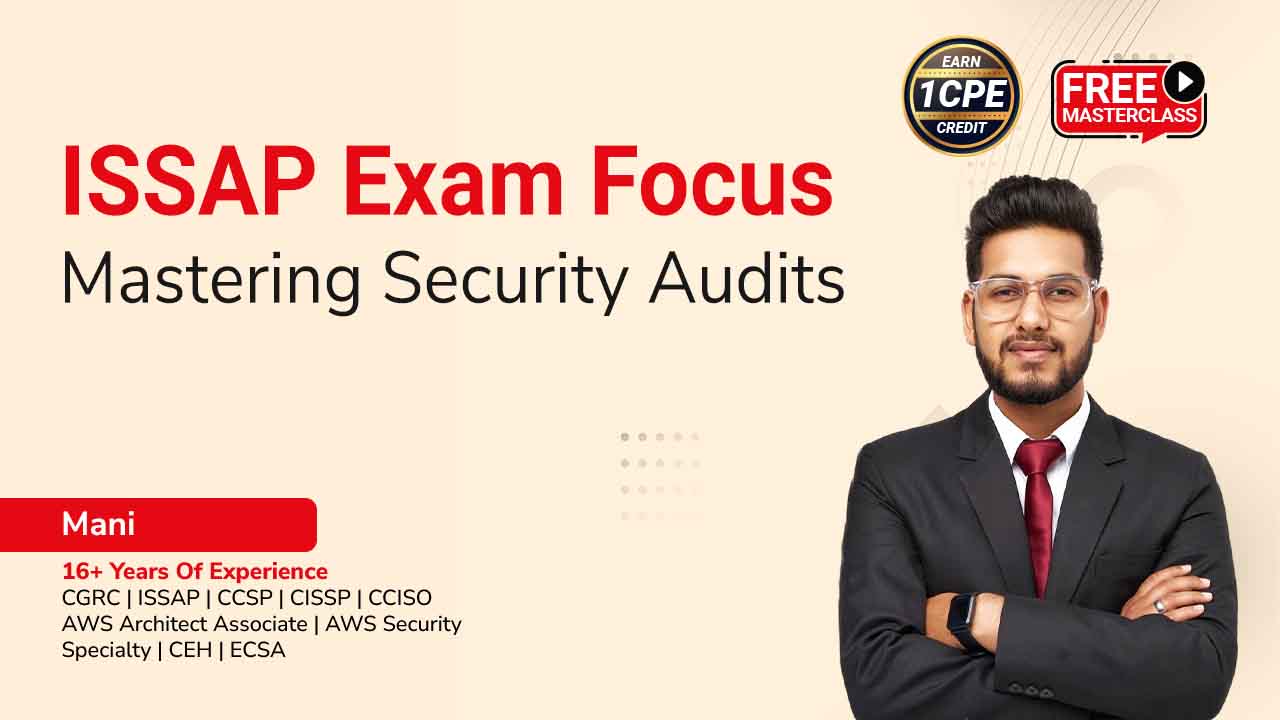How to Become a CISSP Expert?
Cybersecurity breaches and threats are a significant concern for businesses all around the world. Cybersecurity is the technology, technique, and practice concerned with safeguarding electronic data and the systems that support it from compromise and attacks.

As we have all become more and more reliant on computers, networks, and data storage systems, we risk losing or compromising our sensitive information, documentation and data to illegal cyber elements. The demand for experts with knowledge and experience in security implementation and management has never been higher, and it is constantly increasing.
One such infosec professionals in-demand are the Certified Information Systems Security Professional (CISSP) experts. This article will provide you with the details on how to become a CISSP expert.
What is a CISSP Expert?
CISSP experts strengthen cutting-edge information security systems by protecting data from unauthorized access and infringement. Organizations entrust CISSP experts with defining, designing, managing and controlling their security architecture. CISSP experts with a lot of experience are frequently regarded as the best professionals for protecting sensitive data in an organization.
How to Become a CISSP Expert?
In terms of knowledge and skills, CISSP experts are at the top of the cybersecurity game. To become a CISSP expert, one must have a solid understanding of information systems, networks, and cybersecurity trends. A graduate degree in computer science, information technology, or a related field is desirable to be a CISSP expert. You can follow the below-mentioned steps to become a CISSP expert.
1. Understand the basics of cybersecurity: To become a CISSP expert, you must first become familiar with the current cybersecurity landscape and understand key tools for evaluating and managing security protocols in information processing systems. Gain an understanding of cybersecurity fundamentals, threat actor attacks, mitigation, security policies, secure architecture, wireless networks, network security controls, security testing, and more.
2. Gain the required experience: CISSP experts are not entry-level professionals. A CISSP expert must have at least five years of paid work experience in two or more of the CISSP CBK’s eight domains. The eight domains of CISSP certification are Security and Risk Management, Asset Security, Security Architecture and Engineering, Communication and Network Security, Identity and Access Management (IAM), Security Assessment and Testing, Security Operations, and Software Development Security.
Additionally, anyone who does not have the needed experience to become a CISSP expert but passes the CISSP exam can become an Associate of (ISC)2. After that, the Associate of (ISC)2 will have six years to complete the five years of experience required.
3. Get entry-level cyber security certifications: If you don’t have enough relevant job experience or a firm knowledge of cybersecurity concepts to become a CISSP expert, CompTIA offers entry-level A+, Network+, and Security+ certifications. With that foundation in place, you can apply for a security-related job and gain some much-needed IT experience.
Consider seeking the (ISC)2 Systems Security Certified Professional (SSCP) certificate if you’ve been working in IT security for a year or two. The SSCP is a precursor to the CISSP, covering many of the same issue categories, even though it is not an official prerequisite.
4. Get yourself certified: The most excellent way to demonstrate your expertise is to gain a professional badge. So, to become a CISSP expert, you need to clear the CISSP certification exam. The Certified Information Systems Security Professional accredited as CISSP is a worldwide recognized certification for IT security professionals. Obtaining this credential verifies an individual’s knowledge and abilities in the field of information security. It enhances one’s credibility and makes it easier for the candidate to land a better job with a higher pay-grade. A CISSP certification is also a requirement for many high-level security roles. Below are a few details about the CISSP certification exam.
Domains of CISSP

CISSP Exam Details
| Exam Name | CISSP CAT | CISSP Linear |
| Exam Duration | 4 hours | 6 hours |
| Number of items | 175 | 250 |
| Exam Format | Multiple-choice and advanced innovative items | Multiple-choice and advanced innovative items |
| Passing Score | 700 out of 1000 points | 700 out of 1000 points |
| Language | English | French, German, Brazilian Portuguese, Spanish-Modern, Japanese, Simplified Chinese, Korean |
| Testing Center | (ISC)2 Authorized PPC and PVTC Select Pearson VUE Testing Centers | (ISC)2 Authorized PPC and PVTC Select Pearson VUE Testing Centers |
5. Get help from a professional: Enrolling in a training course is one of the most acceptable ways to prepare for the CISSP certification exam. Formal CISSP training gives you a well-organized overview of the latest technologies, threats, practices, regulations, and standards. You will get the help of a professional in your CISSP expert journey.
6. Earn a CISSP endorsement: To become a CISSP expert, you must subscribe to the (ISC)2 Code of Ethics and complete an endorsement form after passing the CISSP certification exam. Another (ISC)2 certified expert who verifies your professional work experience must sign the endorsement form. Because passing the exam does not automatically award you certification status, you must submit the completed form within nine months of completing the exam to become completely certified.
CISSP with InfosecTrain
CISSP experts are the most well-known professionals in the field of information security. If you are sure that being a CISSP expert, one of the hottest IT job profiles, is the career you wish to pursue, you can check out and enroll in the CISSP certification training course at InfosecTrain. CISSP serves as a benchmark against which security executives are judged. Our CISSP Certification training course is intended for security professionals who want to gain a comprehensive understanding of the current cybersecurity and information system security services.





